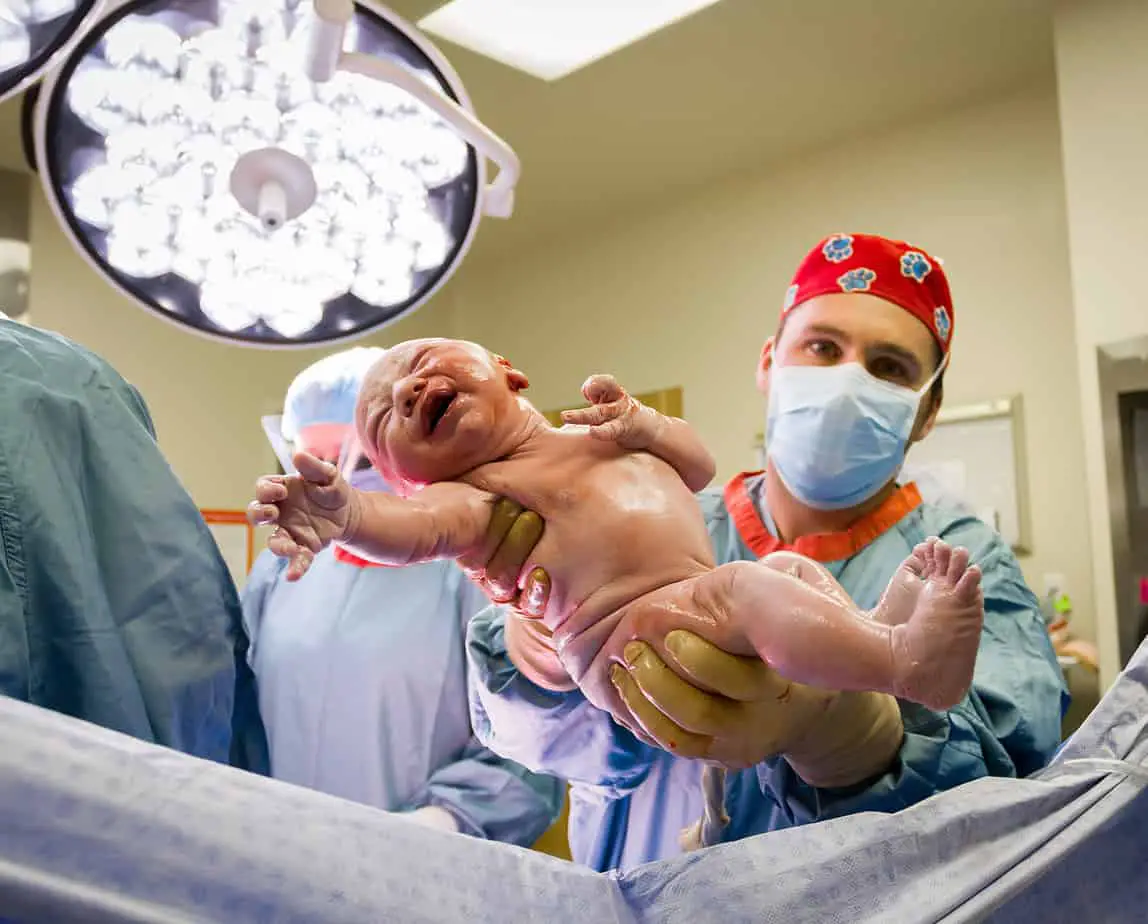
Giving birth, whether vaginally or by c-section, is not without its challenges. Although the reward, a beautiful newborn baby boy or girl, is more than worth it, women typically experience excruciating pain, bleeding, tearing, swelling, and other side effects which can persist long after the baby has been born. Many women also suffer from gas pain after c-section surgery, in addition to tenderness around the incision site and other types of discomfort.
What Causes Gas After a C-Section?
Abdominal surgery often results in sluggish bowels that fail to process and eliminate wastes optimally. This can result in many unpleasant symptoms as gas and stool linger longer than usual within the digestive tract.
Because this is a known problem, nurses will routinely palpate the stomach to feel for the presence of gas while a new mother recovers in the hospital.
If found, medicine will be given to provide relief. However, sometimes gas problems persist even after discharge from a hospital. This may be for any of several reasons.
1. Constipation
Gas is often the result of constipation. In this instance, it takes place along with hard and infrequent bowel movements, bloating and discomfort, and difficulty voiding stools from the body.
Some also experience the sensation of still having a full bowel even after using the bathroom. Because both iron supplements and pain relief medications given to women following surgery may cause constipation, developing this condition is not uncommon.
2. Diet

What a woman eats may also contribute to gas. Reevaluate dietary choices and whether they include gas-inducing items such as beans, Brussels sprouts, prunes, whole grains, or carbonated beverages. Too much fiber can cause indigestion, as can candy with sorbitol or chewing gum.
In addition to avoiding large amounts of high fiber sources, also limit high-fat items. These are more slowly digested and therefore may induce bloating.
Those who find symptoms worsen following dairy consumption may have unknown lactose intolerance made worse by after-birth effects. Dietary elimination may help identify whether or not a particular food is contributing to any problems.
3. Digestive Diseases or Conditions
Of course, in addition to dietary sensitivities, women with known digestive diseases or conditions typically experience gas-related problems as well.
For instance, those with irritable bowel syndrome or Crohn’s disease are more susceptible to bloating-related discomfort following pregnancy. In fact, the pain they experience may reach extreme levels.
4. Eating Habits
Beyond what is eaten, how it is eaten also matters. Try to have smaller meals more often instead of larger ones that take longer to digest and move slowly through the digestive system.
Try not to eat quickly, but instead chew food thoroughly to aid digestion. Eat small bites, so that excess air is not gulped down along with the food.
5. Infection
In some instances, what women believe is gas pain may, in fact, be something else.
Sometimes extreme sensitivity in the abdominal area may indicate an infection. Infections typically occur with heavy bleeding, vaginal discharge, nausea or vomiting, and fevers over 100.4 degrees Fahrenheit.
If a woman experiences any of these, it is imperative to consult with a doctor to rule out a serious condition.
Remedies for Gas

To help promote healthy and regular bowel function, drink a steady supply of water and try to walk around as soon as possible after birth. Exercise will also stimulate the movement of gas. However, check in with a doctor beforehand to ensure your routine is post-pregnancy friendly.
Also, keep in mind that following a c-section, doctors typically recommend you wait 6 or so weeks before returning to a somewhat regular routine.
If gas lasts for more than a few days, a doctor may recommend a stool softener in the case of suspected constipation. For gas itself, Mylicone, or some other type of over the counter simethicone may provide relief.
Simethicone helps combine gas bubbles and promotes their journey outside of the body. Mylanta is another option to help with indigestion, with the benefit of a good flavor.
Probiotics may also reduce symptoms and restore a much-needed balance of bacteria and yeasts within the digestive tract.
Discuss these possible solutions with a doctor to determine which treatment is most appropriate, as it will vary by individual.
Gas Pain After C-Section: Normal, but Treatable
Gas pain following a surgical birth is, unfortunately, very common. It is routinely felt for and treated during hospital recovery. However, it may linger long after discharge. Gas may be related to constipation, dietary choices, or eating habits.
In some instances, it may also be pain related to an infection, not gas at all, that is the problem. Talk to a doctor to find the best treatment for discomfort that becomes unbearable or endures for more than a few days. Possible solutions include simethicone drops, stool softeners, or probiotics.


